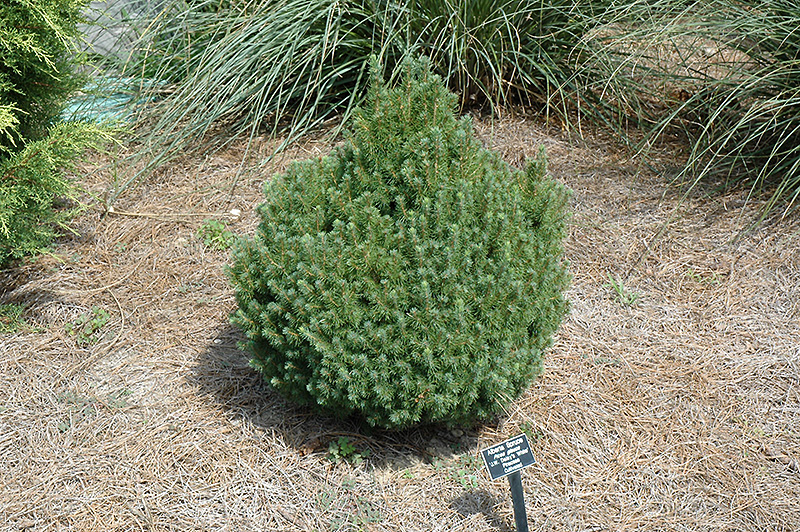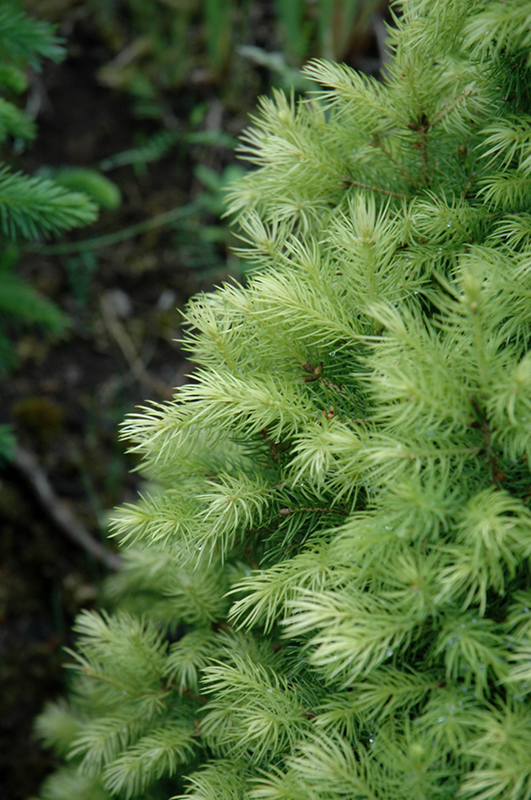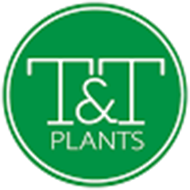J.W. Daisy's White Alberta Spruce
Picea glauca 'J.W. Daisy's White'
Height: 3 feet
Spread: 3 feet
Sunlight:
![]()
![]()
Hardiness Zone: 3
Other Names: Picea glauca var. albertiana
Description:
A distinctive cultivar featuring bright yellow new foliage that morphs to white, before maturing to blue-green; makes an exceptional focal point or grouping; one of the best dwarf spruces; very unique, hardy and tough
Ornamental Features
J.W. Daisy's White Alberta Spruce is a dwarf conifer which is primarily valued in the garden for its distinctively pyramidal habit of growth. It has attractive powder blue-tipped bluish-green foliage with hints of white which emerges yellow in spring. The needles are highly ornamental and remain bluish-green throughout the winter.
Landscape Attributes
J.W. Daisy's White Alberta Spruce is a dense multi-stemmed evergreen shrub with a distinctive and refined pyramidal form. It lends an extremely fine and delicate texture to the landscape composition which should be used to full effect.
This is a relatively low maintenance shrub. When pruning is necessary, it is recommended to only trim back the new growth of the current season, other than to remove any dieback. It has no significant negative characteristics.
J.W. Daisy's White Alberta Spruce is recommended for the following landscape applications;
- Accent
- General Garden Use
Planting & Growing
J.W. Daisy's White Alberta Spruce will grow to be about 3 feet tall at maturity, with a spread of 3 feet. It tends to fill out right to the ground and therefore doesn't necessarily require facer plants in front. It grows at a slow rate, and under ideal conditions can be expected to live for 50 years or more.
This shrub does best in full sun to partial shade. It prefers to grow in average to moist conditions, and shouldn't be allowed to dry out. It is not particular as to soil type or pH. It is somewhat tolerant of urban pollution, and will benefit from being planted in a relatively sheltered location. This is a selection of a native North American species.








